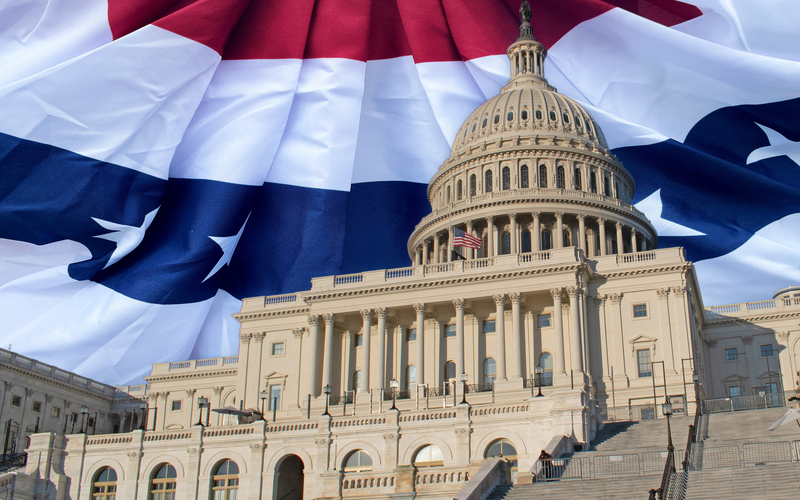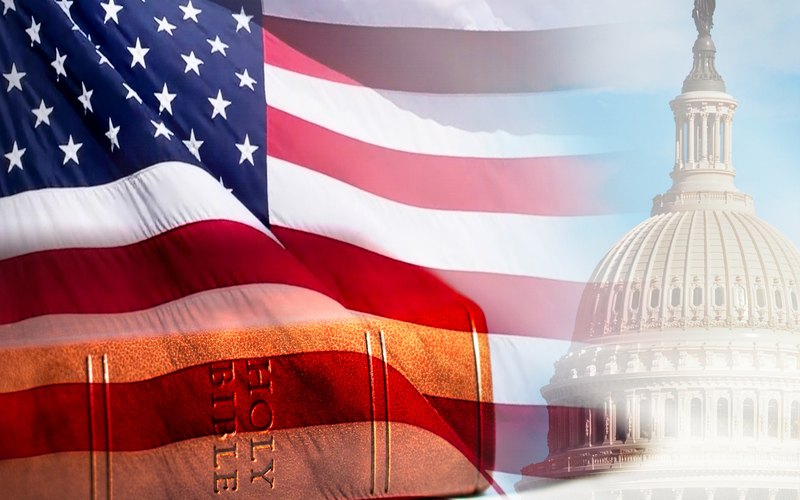Fight Like Francis
Sign up for a six month free
trial of The Stand Magazine!
The tumultuous situation in our nation today is not unlike other obstacles we have had to overcome throughout our brief history.
You can be sure that anywhere freedom is sought, or exists, there will be great efforts to undermine or take it.
Our Founding Fathers knew this. Thomas Jefferson said, “The price of freedom is eternal vigilance.” And Thomas Paine said, “Those who expect to reap the blessings of freedom, must, like men, undergo the fatigue of supporting it.”
Gaining and keeping freedom is not easy. Much has been sacrificed to give us what we have today, and if we wish to maintain it, it would do us well to look to heroes of the past and learn from their successes.
Nearly 250 years removed from the bravery and sacrifice of those heroes, history paints an inspiring picture of their lives.
I wonder, 100 years from now, what picture will history paint of us. Will the story be told that we fought for, and secured our freedom, or that we squandered it?
George Washington was born in 1732. His is a name that nearly all immediately recognize, and for good reason. In his early 20’s he served bravely in the French and Indian War, later became the commander in chief of the Continental Army during the Revolutionary War, and of course, served two terms as our nation’s first president. His contributions to this great country should be taught about to all and celebrated.
Washington however was not the only person born in 1732 who would have great impact during the fight for independence. Another hero born that same year was Francis Marion.
Marion was born on his family’s plantation in Berkeley County, South Carolina. The family’s youngest son, Marion was hungry for adventure and by age 15 he joined the crew of a ship sailing to the West Indies. His first voyage proved to be a disaster, as the ship sank, and Marion and the crew spent nearly a week drifting at sea in a lifeboat before making it back to land. Barely escaping the ordeal with his life, Marion decided to stay away from open water.
With his feet firmly planted on dry ground, Marion managed his family’s plantation, and by age 25 he joined the South Carolina militia to help protect settlers from Indian attack. He and his fellow militiamen met twice a month to train and prepare should such an attack take place. He soon rose to the rank of captain in his brigade.
Only a few years later, Marion was called on to lead his men into battle during the French and Indian War. While fighting the Cherokee, Marion observed how the Indians used the landscape of the Carolina backwoods to their advantage, concealing themselves and mounting devastating ambushes. Little did Marion know; he would employ these same tactics himself during the final years of the Revolutionary War.
In 1761, after successfully leading his militia to defeat the local Cherokee, and at the conclusion of the French and Indian War, Marion returned home to farm, eventually purchasing his own plantation.
During this time, tensions between England and the colonies grew. Many colonists had a thirst for freedom, while the Crown had an insatiable hunger to gain and hold on to power.
Marion was among those who hoped to drink from the cup of freedom and soon found himself in the army again. This time though, rather than fighting for the British, he would be fighting against them.
The Revolutionary War kicked off with the battles of Lexington and Concord, and early on Marion was responsible for building and defending Fort Sullivan on Sullivan’s Island and protecting the harbor of Charleston, South Carolina.
In a unique turn of events, or perhaps through divine intervention, Marion suffered an injury that forced him to leave Charleston prior to it being captured by the British. This no doubt saved him from either being killed or taken prisoner.
While in the countryside recuperating, and with the American army in retreat, Marion began rounding up men and organizing a militia. His was a ragged bunch with subpar weaponry and no uniforms; an unpaid hodgepodge group that fluctuated between 20-70 men, some African Americans, whites, and even some Indians – all with a common goal, freedom. While healing from his injury and unable to fight, he could still ride a horse and lead men.
Marion would now employ the tactics he learned while fighting the Indians, a move no doubt the British never saw coming. Many refer to Marion as the father of guerrilla warfare.
Over the next few months, Marion and his men would make life miserable for their enemy. His militia usually struck the British under the cover of darkness, catching them off guard, storming their camps, and taking prisoners and much-needed supplies such as horses and guns.
By the time the surprised Redcoats could gather their wits and mount a defense, the skirmish was over, and Marion and his men would slip back into the Carolina swamps where they were nearly impossible to find.
One of the militia’s more notable victories happened in August of 1780 when Marion and his men attacked a British outpost and rescued 150 American prisoners and captured 20 British guards.
The effectiveness of Marion’s tactics proved frustrating to the British. Because they never knew where or how the ragtag group of men would strike, the British were forced to divide their forces, effectively weakening themselves in the process.
As news of Marion’s victories spread, patriotism grew among the locals, inspiring them to help Marion and his men when they could by providing them a meal or a place to sleep.
The militiamen’s lives were not easy. They spent most of their time in hidden camps in the swamps, coming out only at night to attack. They mostly slept on the ground, drank dirty swamp water, and lived off grits and sweet potatoes, or what they could occasionally capture from the British.
The Redcoats searched diligently for Marion in hopes of capturing him, but he was far too evasive, eventually earning himself the nickname Swamp Fox.
Marion and his men proved to be such formidable opponents to the British that General Cornwallis was forced to divide his army, reducing the number of men Cornwallis would have farther north to fight General Washington.
Marion led many effective engagements before Cornwallis’ surrender, and though he never commanded a major fighting force or led in what would be considered a major campaign, his contribution to the fight for freedom could never be overstated.
Not Everyone Is a Washington
When one considers the Revolutionary War, the first person that comes to mind is usually George Washington. As I mentioned earlier, there is good reason for that.
But not everyone can be a George Washington. Furthermore, as brilliant as he was, Washington couldn’t have won the war on his own. Without the likes of Marion and other little-known or unknown figures fighting in the shadows, many of the smaller battles would have been lost, and perhaps the quest for liberty would have never been realized.
As we survey our landscape, it’s becoming increasingly clear (unless your head is buried in the sand), that our freedom is a stake, and the socialists, Marxists, and communists aim to take them.
Many are guilty, myself included, of looking to our political leaders who allegedly represent us, and expecting them to prevent that from happening. We see the large-scale battles being waged, and we trust our leaders to lead and fight.
But if our elected officials have proven anything to us as of late, it’s that they are good at doing nothing. With the exception of only a few, it seems as though we are ruled by a one-party system leading us to destruction.
I think it’s time that we fight like Francis. We may not be funded enough or recognized enough to fight at the national level, and our battle may not yet be waged with weapons, but as freedom-loving patriots, we can sure fight at the local level.
When the power-hungry tyrants come to your town, organize and make them leave. Don’t let them have your school boards. Don’t let them have your churches. Don’t let them have your businesses. Don’t let them have your clubs and civic organizations. Kindly show them the door.
And if they have already taken these things, take them back.
Conservatives by nature just want to enjoy our freedoms and be left alone. We generally don’t have nefarious agendas, nor do we like to get involved in the cesspool of politics. However, the current state of affairs demands we get involved, and stay involved.
I’m just as guilty of complacency as the next fellow, but I must question, where has that gotten us?
Radical Leftists always have an agenda. They always have a goal – control and power.
Even Marion and his men had to come out of the swamps and fight from time to time to defeat the British.
It’s past time for conservatives to start showing up and fighting. The other side is thirsty to rule us.
The question is, do we value our freedom enough to stop them?

Sign up for a free six-month trial of
The Stand Magazine!
Sign up for free to receive notable blogs delivered to your email weekly.



















